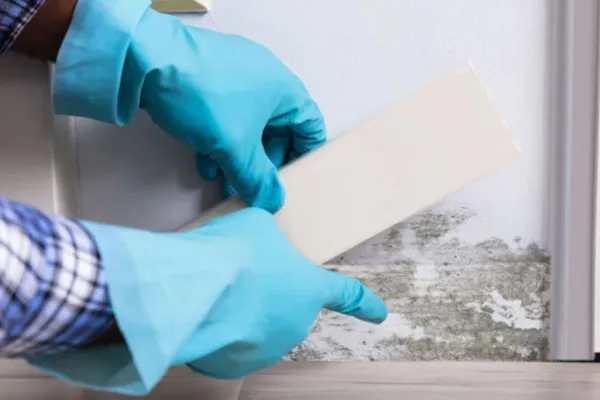Welcome to Our Blog
Insights and tips to keep your living environment safe and healthy.

Is Mold Causing Your AFIB?
Are you living with atrial fibrillation (AFIB) and searching for answers? You may be surprised to learn that mold in your environment could be contributing to your health issues. In this blog post, we'll delve into how water-damaged buildings and mold can affect your health, potentially leading to AFIB, and how you can find out if mold may be the culprit.

The Hidden Link Between Water Damage and AFIB
Many people are unaware that the health of their home or workplace can significantly impact their well-being, including their heart health. A water-damaged building is one that has experienced harm or deterioration due to exposure to water or moisture. This damage can occur for various reasons, such as:
1. Flooding: Natural disasters like heavy rain, hurricanes, or river overflows can lead to extensive water damage to buildings.
2. Leaks: Plumbing leaks, roof leaks, or other structural defects can allow water to enter a building, causing damage over time.
3. Condensation: Excessive condensation in a building, especially in areas with high humidity, can create moisture problems.
4. High Humidity: Elevated humidity levels within a building can result in moisture-related issues and damage.
Where there's water damage, there's often mold and bacteria, lurking in the shadows, silently affecting your health.

How Mold and Bacteria Impact Your Health
Mold and bacteria are experts at survival, and they release toxins like mycotoxins, endotoxins, and exotoxins, along with gasses designed to ensure their longevity. Unfortunately, these toxins can be harmful to humans, causing a range of health problems, including AFIB. Here's how it works:
- Gut Microbiome Destruction: Mold and bacteria can destroy your gut microbiome, which plays a crucial role in your overall health.
- Immune System Weakening: These toxins weaken the immune system, making your body more susceptible to various health issues.
- Inflammation and Oxidative Stress: Mold exposure can lead to inflammation and oxidative stress, which can trigger AFIB and other health-related concerns.
Despite the potential health impacts of mold exposure, many cardiologists may not be aware of this connection, as it's not typically part of their training. It's not an intelligence issue but rather an issue of awareness.

How to Determine if Mold is Causing Your AFIB
If you suspect that mold in your environment might be contributing to your AFIB or other health issues, it's crucial to take action. Mold and bacteria should be considered guilty until proven otherwise. To find out if mold is causing your AFIB, you should consider testing for it.
Whether you're living in a brand new home or one that's been around for a century, mold doesn't discriminate. It poses a threat to your health, regardless of your home's age or condition. To learn more, check out this information from the EPA about Particle Pollution and Cardiovascular Effects.
Conclusion
If you're dealing with AFIB or other health-related issues, it's essential to consider the possibility of mold in your environment. Mold exposure can have a significant impact on your health, and taking steps to test for it is a crucial part of managing your well-being. Don't leave your health to chance—test, don't guess, and take control of your heart health today.
At Advanced Clean Air Solutions in Santa Barbara, we're here to help you create a safe and healthy living environment. If you have concerns about mold in your home or workplace, call us for professional assistance and peace of mind. Your heart deserves the best care possible.
Advanced Clean Air Solutions | 🌐 www.advancedcleanairsolutions.com | 📞 805-232-7491
Copyright @ 2025 - All rights reserved
Advanced Clean Air Solutions, LLC
351 Paseo Nuevo 2nd Floor #1033
SANTA BARBARA, CA 93101

